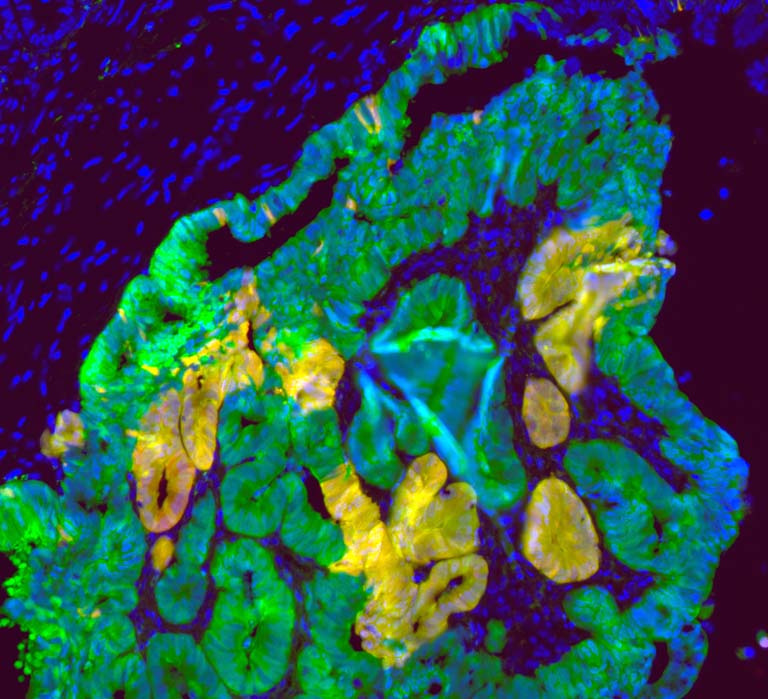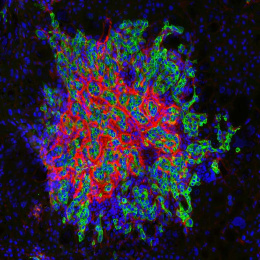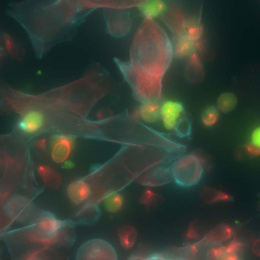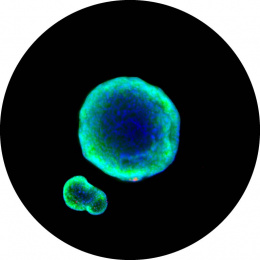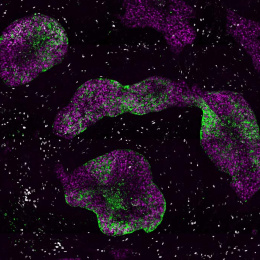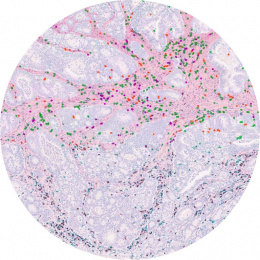Novel Transplants for Modeling Tumor Heterogeneity
Novel Transplants for Modeling Tumor Heterogeneity
Jatin Roper, Tuomas Tammela
MIT Department of Biology, Koch Institute at MIT
Cancers often develops through a step-wise sequence of genetic mutations. To develop new therapies for cancer, it is important to model this process in mice. However, current mouse models are only able to mutate multiple genes all at the same time. We devised a method of deleting the Apc gene in a colon tumor first, then activating the Kras gene in the established tumor. In this image, you see the Apc deleted tumor tissue in green (GFP). Tumor cells that then acquired the Kras mutation are yellow. This is a major step forward in our ability to model variability or heterogeneity in cancers.
We will use these novel transplantation approach to study how diverse physiological states, such as aging, cancer, high fat diet, and caloric restriction, regulate intestinal stem cell function and cancer initiation.
